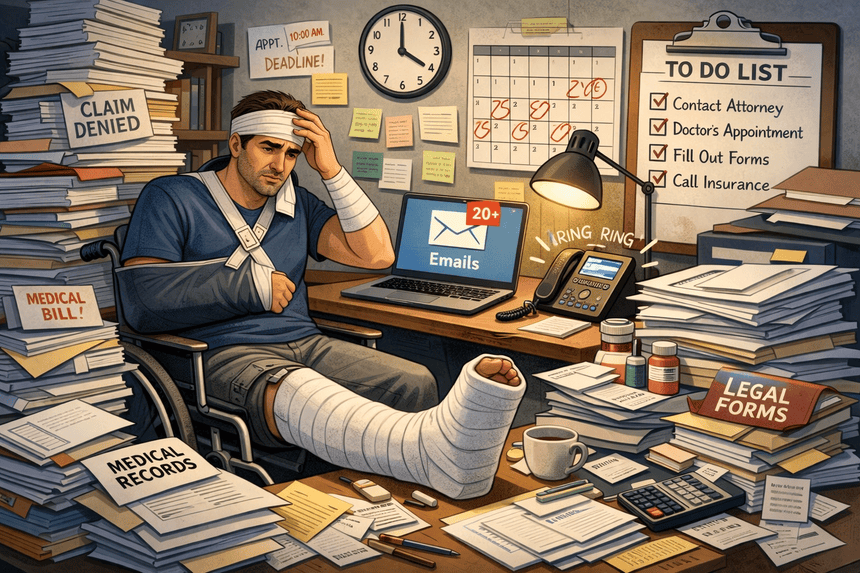Navigating the world of business agreements isn’t just about shaking hands and hoping everything goes smoothly. It’s a detailed process that lays the groundwork for how companies work together, resolve disputes, and protect their interests. Business contracts act as the rulebook for partnerships, employment terms, vendor deals, and more. When these agreements are vague, outdated, or poorly written, they open the door to misunderstandings that can lead to costly consequences. That’s where legal guidance becomes less of an option and more of a necessity. Whether you’re running a startup or managing a growing corporation, understanding what you’re signing—and ensuring those agreements are enforceable—is a major part of running a tight ship.
Why Commercial Agreements Matter More Than You Think?
Business moves fast, and verbal promises just don’t cut it. Written agreements define who’s doing what, when they’re doing it, and what happens if they don’t. They cover everything from confidentiality and non-compete clauses to payment terms and dispute resolution. A single clause—missed or misunderstood—can derail an otherwise smooth business relationship. That’s why clear, well-structured agreements are essential for keeping operations aligned and expectations realistic. They minimize the chance of messy breakups and costly litigation down the line.
Having a commercial contracts lawyer review or draft your agreements ensures that the language reflects your intentions, complies with the law, and protects your company’s interests. Legalese doesn’t have to be a foreign language—working with someone who understands the fine print can help you breathe a little easier when you sign on the dotted line.
Decoding Legal Jargon Without Losing Your Mind
Let’s be real—legal documents aren’t exactly beach reading. They’re dense, full of unfamiliar terms, and easy to misinterpret if you’re not used to the format. But you don’t have to become a legal wizard overnight. What you do need is someone who can translate the complexity into something that makes sense for your business.
A commercial contract attorney brings that clarity. Whether you’re drafting service agreements, vendor contracts, or partnership terms, they break down what each section actually means in plain English. That way, you’re not just blindly agreeing to something because it sounds official. You actually know what you’re committing to—and how it could affect your business down the road.
Common Business Contracts You Might Overlook
Some contracts are obvious—employment agreements, leases, purchase orders. Others tend to sneak under the radar but carry just as much weight. Take nondisclosure agreements (NDAs), for example. These documents protect sensitive information when you’re collaborating with freelancers, partners, or consultants. Or look at independent contractor agreements—without them, you’re risking blurred lines between employment classifications that could cost you at tax time.
Every clause, every section of these documents carries weight. A commercial contracts lawyer can help you figure out what’s standard, what’s negotiable, and what’s just plain risky. It’s not about being paranoid—it’s about being smart and covering your bases from day one.
What Happens When You Don’t Get Legal Advice?
Sure, you could grab a template off the internet and hope it works. Plenty of businesses do. But there’s a big difference between a contract that looks legit and one that holds up when things go sideways. And let’s face it—at some point, things do go sideways.
Maybe a vendor stops delivering on time. Maybe a partner exits the business without notice. Maybe a payment deadline is missed, and you’re stuck holding the bag. If your agreement isn’t legally sound, your options shrink fast. Courts won’t enforce what they don’t understand, and loopholes can become sinkholes if left unchecked.
That’s where a Commercial Contract attorney steps in. They not only anticipate these curveballs but build guardrails into your agreements so you’re not left scrambling when problems pop up.
Red Flags to Watch Out For in Agreements
Sometimes, the devil really is in the details. Automatic renewals, vague payment schedules, and overly broad indemnification clauses can spell trouble. If something sounds too one-sided or open-ended, it probably is.
Watch for language that puts all the responsibility on your business or makes it impossible to exit the agreement without penalty. A contract should be balanced—it protects both parties while allowing for accountability and flexibility. If it feels like a trap, it’s probably worth a second look.
Getting a second opinion from a commercial contracts lawyer can help spot those warning signs before they become legal headaches.
Aligning Contracts with Business Goals
Every contract should align with what your business is trying to achieve. Whether you’re growing your team, entering new partnerships, or offering new services, the agreements you sign should reflect those shifts. It’s not just about legal protection—it’s about strategic alignment.
As your business evolves, your contracts need to evolve too. That’s why regular contract audits can be just as important as annual financial reviews. A commercial contract attorney helps you make sure your paperwork keeps up with your plans, ensuring you’re not stuck operating under outdated terms.
Contracts and Trademarks: A Smart Duo
Think of trademarks and contracts as a tag-team combo for brand protection. While contracts manage relationships, trademarks safeguard identity. If you’ve worked hard to build a name, logo, or slogan that resonates with customers, protecting it isn’t optional—it’s essential.
Feuchtwang Law offers the kind of legal guidance that connects these dots. Their team supports businesses with both contract and trademark law, helping companies solidify their brand presence while staying on solid legal ground. It’s not about putting up legal walls—it’s about building a structure that allows your business to thrive without unexpected detours.
When to Call in the Pros
Not every contract needs a full legal overhaul. But if you’re entering a long-term deal, taking on major responsibilities, or investing significant resources, getting legal counsel is a smart move. Think of it like this: if the stakes are high, the contract should be airtight.
And it’s not just about reviewing what others send you. Having a commercial contracts lawyer draft your agreements from scratch gives you more control over the terms and ensures your interests lead the way. It’s one of those upfront investments that pay for themselves when things get complicated later.
Feuchtwang Law offers professional legal assistance designed to support businesses of all sizes. With experienced attorneys focused on the details of contract and trademark law, they help companies grow confidently, knowing their legal bases are covered.
Final Thoughts – Build Smarter, Not Riskier
Every business, big or small, operates on a foundation of agreements. These aren’t just pieces of paper—they’re the framework that holds your operations together. Clear contracts set expectations, prevent misunderstandings and create space for fair collaboration.
Bringing in a commercial contract attorney isn’t about slowing things down—it’s about building with intention and security. With the right legal support, you’re not just avoiding pitfalls—you’re setting the stage for sustainable growth.
Feuchtwang Law understands what’s at stake. Their approach helps you safeguard your operations, strengthen your brand, and stay a step ahead in a world where the fine print matters just as much as the big picture. Whether you’re finalizing a partnership, launching a product, or reworking internal policies, having a legal ally ensures your business runs as smoothly on paper as it does in practice.









